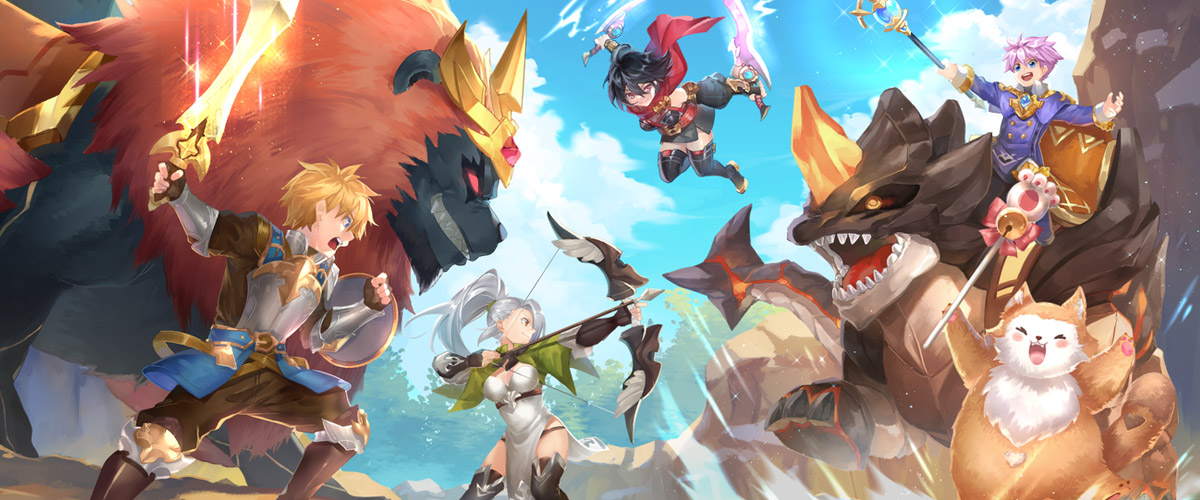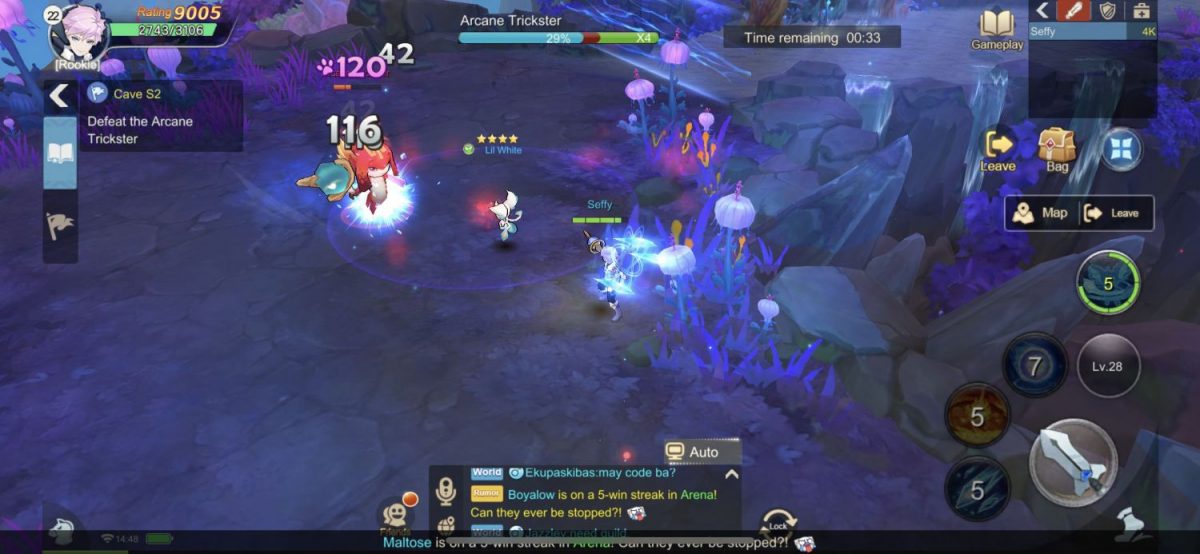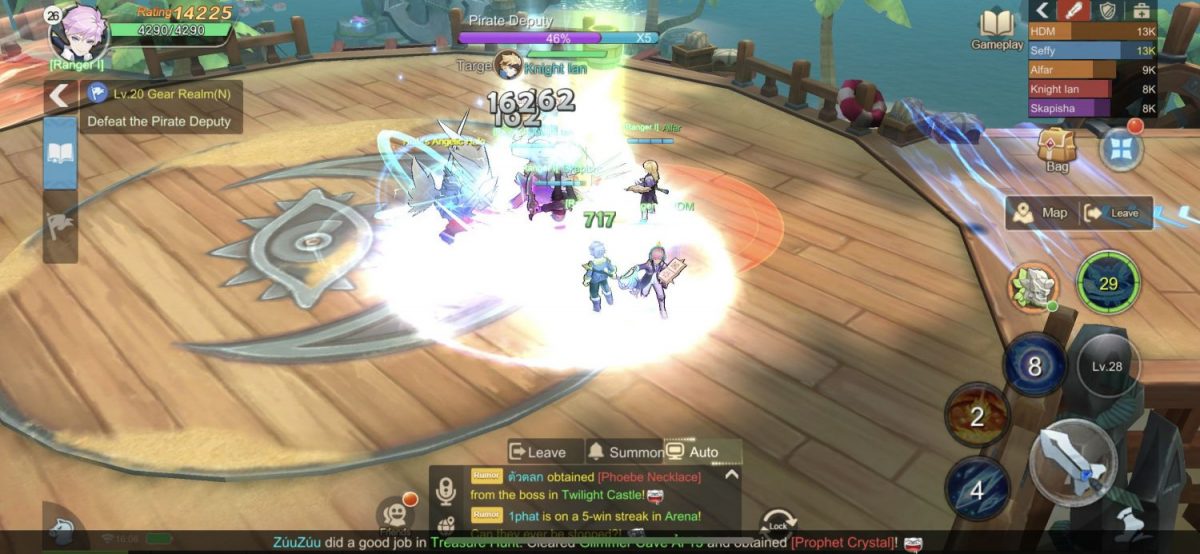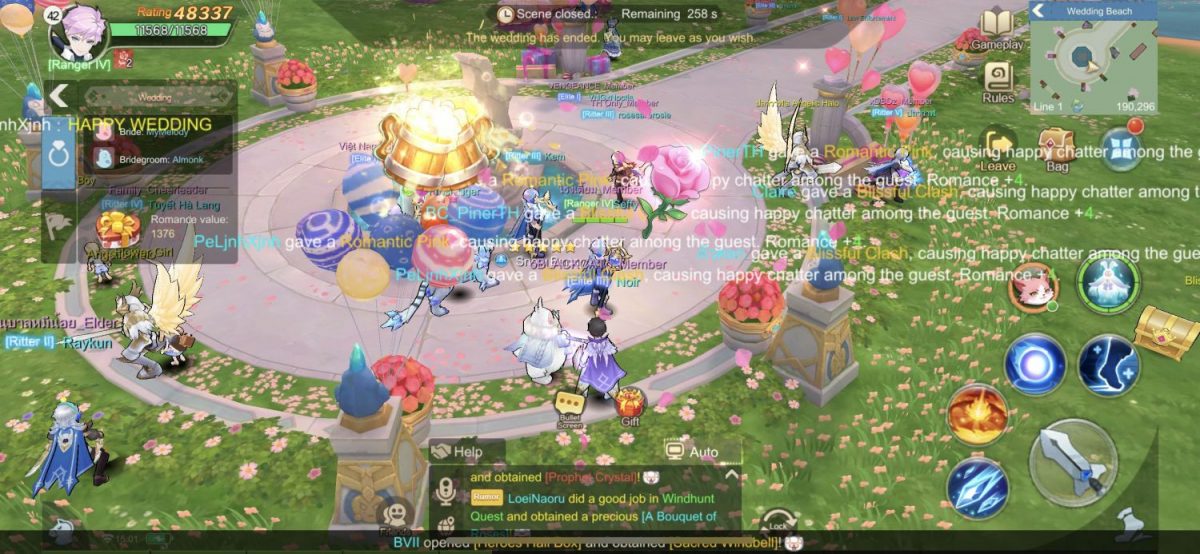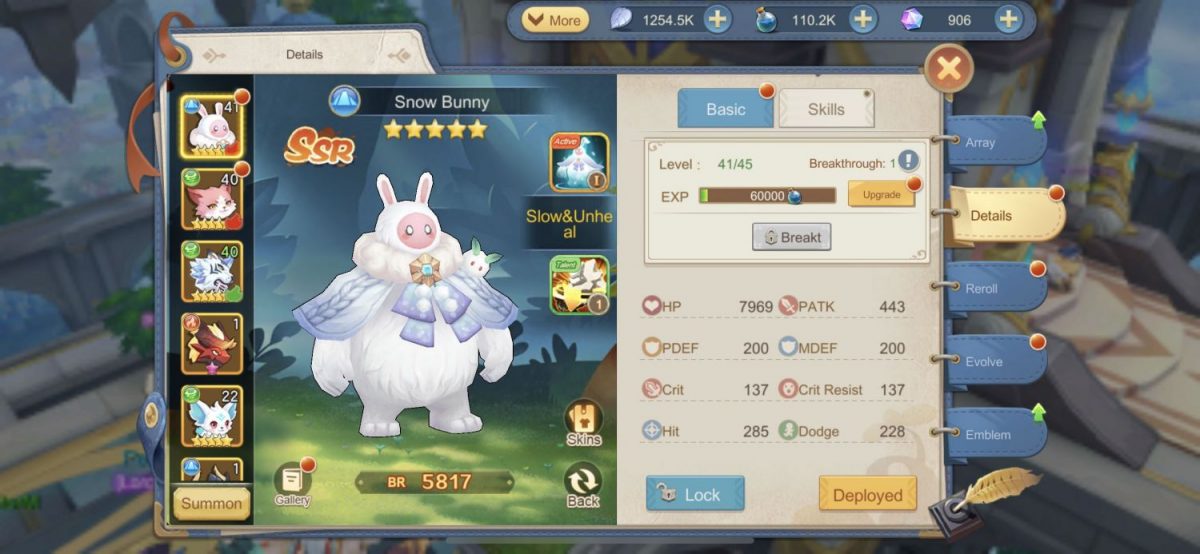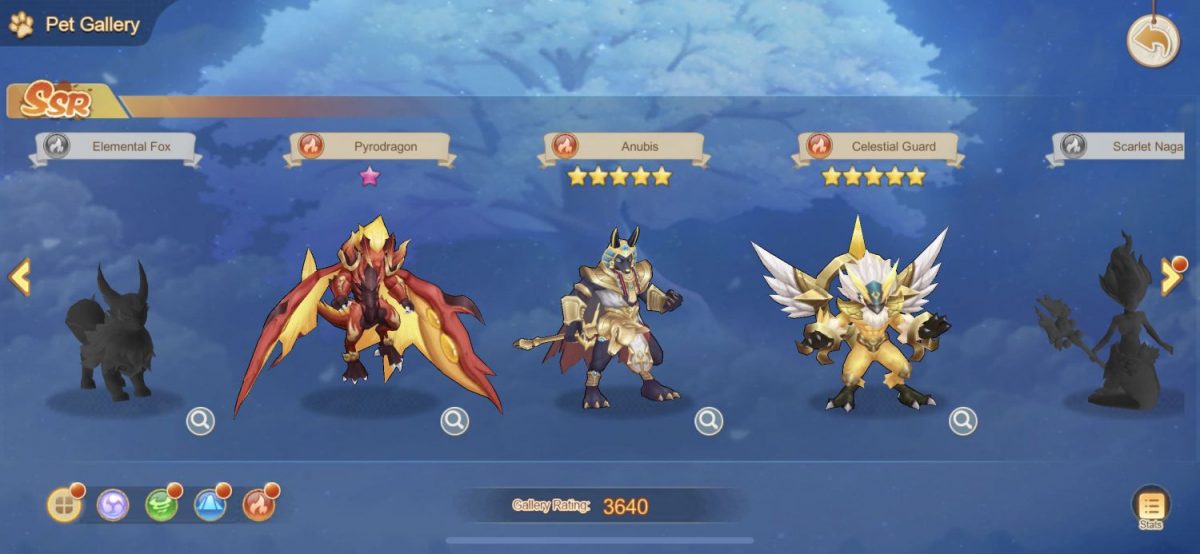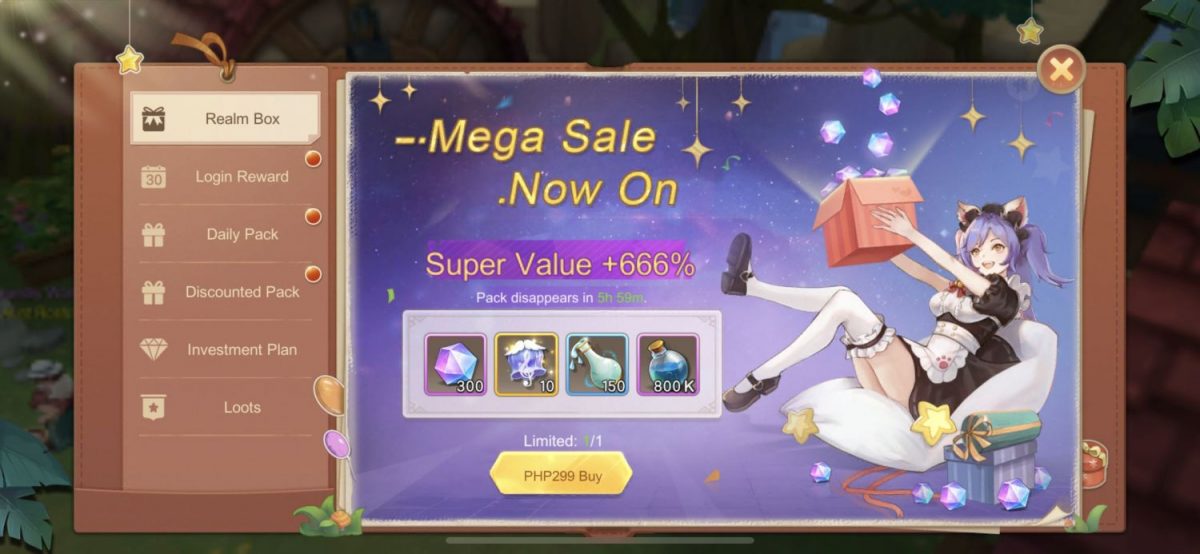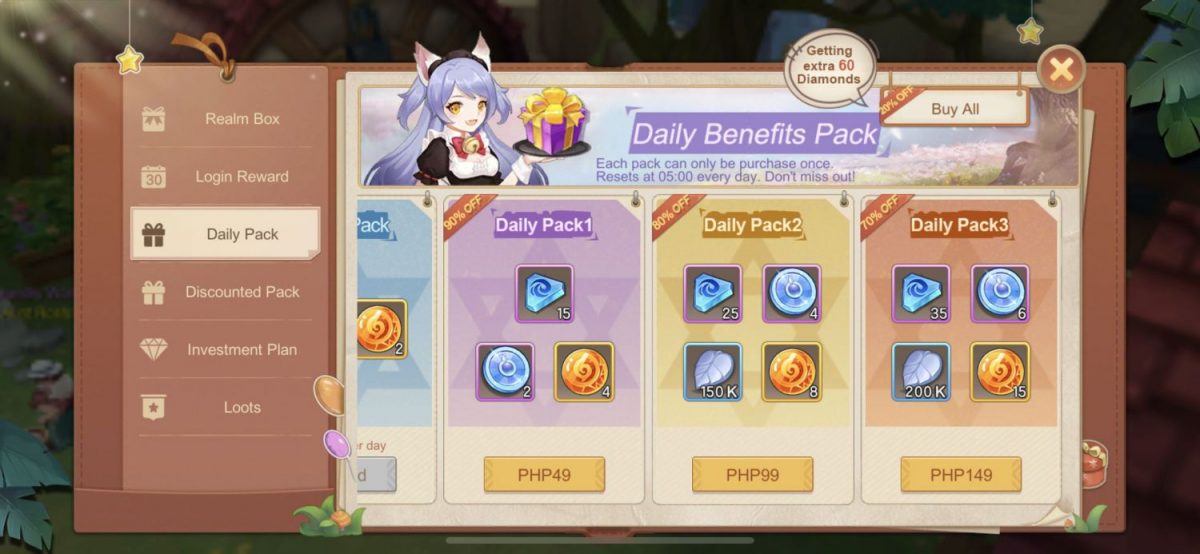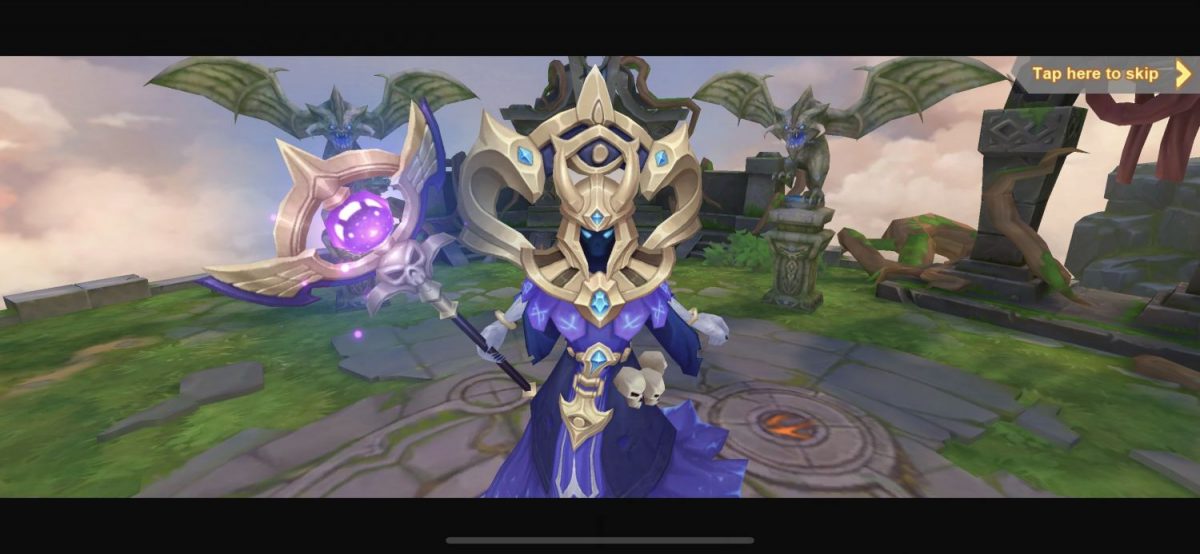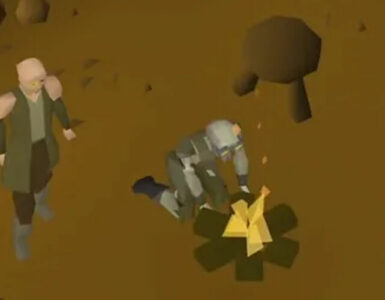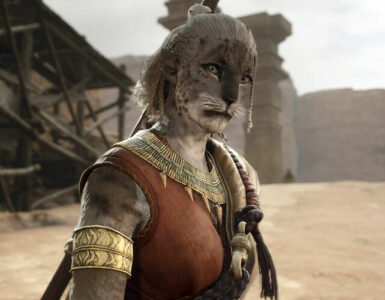The free-to-play mobile Massively Multiplayer Online Role-Playing Game (MMORPG) is a bizarre genre, even to the most seasoned of gamers. It is a mix of the free-to-play PC MMORPGs prevalent in the mid to late 2000s, with idle games like Cookie Clicker and Clicker Heroes, and virtual gacha machines that make government intervention inevitable.
Mobile MMORPGs nowadays vary the ratio of these ingredients and Cloud Song: Saga of Skywalkers is no exception. The game is, in very broad strokes, reminiscent of old MMORPGs such as Eudemons Online and Monster & Me, where players create a character and try to build the strongest combination of pets and equipment. Like in the aforementioned games, Cloud Song has said pets and equipment translated into a single number that conveniently tells players how strong their characters are.
This is what makes the idle game aspect of the game, well, click. Idle games are about watching numbers go big, and big numbers go bigger, with the player barely interacting with the games, and Cloud Song, like many mobile MMORPGs, offers auto-pathing, which will click through dialogue and complete battles without players having to give any input. Players just have to upgrade their gear and level up their pets, and maybe make a few purchases using the various in-game currencies in between choosing quests for the player character to complete automatically. This auto-pathing also extends to the party system, where party members can automatically follow the leader, who is also likely automatically clearing the instance or quest they’re on. Throughout the entire process, players get to enjoy the tiny dopamine rush they get as the number denoting their characters’ battle prowess tick higher and higher.
The proliferation of auto-pathing as a mobile MMORPG staple stems from the sheer ease it affords, allowing players to multitask and be distracted by more important tasks while the game is still progressing and moving on their devices. So while Cloud Song does offer players a seemingly endless list of quests to complete and milestones to reach, when most of them can be done without players engaging much with the game, it begs the question – why even play the game to begin with?
Simply put, Cloud Song gives players the feeling of reaching a high level, progressing, and becoming successful in an MMORPG without requiring players to actually sink in the countless hours of focused attention required to get there. It is the feeling of having played a game without actually playing it. For those chasing after the nostalgia of grinding after-school hours away immersed in virtual worlds where strength is unambiguously measured and almost mind-numbingly simple to build up, this game offers itself as a solution. Cloud Song is able to give that intoxicating dopamine rush to players who are already tight on time.
Players who instead prefer to have full control, to play the game in a way they believe games should be played may find themselves wanting more of a challenge. When pretty much everything in the game is designed to be easily cleared by auto-pathing, even if there is room for optimisation on the players’ part, it doesn’t necessarily feel rewarding. There won’t be much in the way of acknowledgments for those who choose to approach the game in a more tedious fashion, and the completion of each task points to even more tasks to complete, like a kind of Sisyphean labour. When a game is built in a way that allows people to not pay much attention to it, perhaps the choice to devote focus on it simply highlights the vapidity of its hyper-efficient gameplay loop.
The trade-off with this fuss-free system is that the game world inevitably feels artificial and doesn’t allow for deep immersion. Every map is designed in an unnaturally convenient way where NPCs have barely any personality, and each location disparate enough to call attention to its specious nature. The monsters strewn about the maps don’t even put on a pretense of being part of a virtual ecosystem, instead seeming more like something set up for a sort of digital whack-a-mole.
Even the pets, which is the mechanic that is supposed to set Cloud Song apart, end up becoming just another set of equipment that players try to optimise. The art style reminds one of anime and JRPGs such as the Atelier series. As such, at least visually, it will appeal to those who enjoy anime and JRPG aesthetics. However, the mentality of pets as gear is one that players inevitably slip into when playing the game, despite the attention put into the appearance of the pets.
After all, when the entire game is designed as a vehicle to boost a number, and when said number needs to reach certain values for more content to be unlocked, it is unlikely that players will get attached to the pets the same way Tamagotchi owners do.
This is made even more unlikely by how, out of all the mechanics that will make the players stronger, pets are far and away the one mechanic that boosts the all-important battle prowess number the most. Not only that, the game gives players nine slots to place pets in. Six of these pets will directly give players stats, and are really pieces of equipment rather than ‘living’ creatures. The other three pets are placed in the major array, each of them having an active skill and can participate in battle interchangeably. Still, effectiveness in battle is the only consideration that players will likely have when choosing the pets. And when new pets are released in subsequent updates, it is unlikely that they will think twice when switching out one companion for another.
With all that said, this isn’t a knock against Cloud Song. After all, many monster collecting game franchises such as Pokémon, Digimon, and Siralim do share this trait. There is nothing wrong with a game that is geared towards the min-maxers who like to see numbers climb ever higher, a kind of open-ended puzzle to solve, a machine that one can endlessly tweak.
When it comes to MMORPGs, the sense of attachment formed by a well realised world and well thought-out mechanics play a huge role in extending the longevity of the game. The pattern of playing till one gets bored then quits is already common with MMORPGs, but with free-to-play mobile MMORPGs, one runs through the cycle much faster. This has led to some referring to such games as ‘fast food games’, because of how many would start playing them, get one’s fill of level ups and monster bashing, then uninstall them when these intangible virtual rewards taper off.
Still, to be fair to Cloud Song, as far as the ratio of MMORPG to idle clicker goes, it does lean heavier on the MMORPG side. Players are able to distribute skill points, try out different combinations of pets and discover different synergies, and fight it out in the 60 vs 60 Player vs Player (PvP) mode. In battles and in instances, players are able to temporarily resume manual control at any time to get through a tougher enemy before reverting back to auto-play, so it really isn’t a game that plays itself completely, even if this happens rarely due to the lack of complexity in place to accommodate the auto-play.
Of course, no amount of manual control will allow free-to-play players to defeat the paying players in any of the PvP modes, unless they too have paying players on their team. This is because purchasing premium currency, especially on the regular, accelerates progression and opens up multiple avenues to gain resources. It is not a stretch to say that in-game, paying players belong on a different social strata than non-paying ones.
Which brings us to the elephant in the room. The in-app purchases. There are many players who don’t uninstall the games when the rewards taper off, instead letting the games tempt them into spending real money to speed up progression and chase that high. There are a few ways these free-to-play mobile MMORPGs do this. First, by showing players all the rewards they miss out by not spending money. Second, by having the premium currency sold in different bundles and making the more expensive ones look like a much better deal. Third, by giving players a lot of goodies at the start and having progression happen at a blistering pace before having the cost of progression be raised exponentially. Fourth, by having some kind of gacha system so players will be tempted to keep pumping money into the game, rolling for the best and rarest stuff. Finally, by letting the premium currency be converted into many different resource types so players will more readily forget how much they have spent on the game.
Cloud Song does all of that. Which is par for the course, sure, but it also points to how the genre isn’t built for ludological engagement. Players who don’t fork out cash will miss out on many rewards in multiple ways, there are limited-time discounts on diamonds, the premium currency, and players can reach a decent level before they even know the geography of the towns. The pets, since there are nine slots for players to fill for their array, are obtained primarily through a gacha system. And when it comes to the different types of resources and currencies, there are prophet essences, azure crystals, rune essences, pet EXP, reroll dews, silverleaves, and goldleaves.
Sadly, with Cloud Song, the sense of nostalgia it delivers is superficial. However, it also offers the experience of being the best, and strongest player in a virtual world, so long as one is willing to pay to get there. That is not to say that those old MMORPGs are better games, or that those games have less of a profit motive. They often do have cash shops and premium currency that will put players who pay up ahead of the pack, but games like Cloud Song are much more effective at making players cave. It is not far-fetched to say that free-to-play mobile MMORPG developers have perfected the craft of making these virtual Skinner boxes.
As far as games in the genre go, Cloud Song at least won’t jarringly bar non-paying players from moving up in the game with unreasonable difficulty spikes. Progression can still be made steadily, and with the huge amount of quests and instances to run, it will take a couple of weeks at least before players hit a wall that calls for either cash or tedious grinding. So long as one isn’t interested in competing to be the best and trying to outdo others, there is definitely a case to be made for taking things at one’s own pace, using the game as more of a distraction and way to relax than yet another arena to try and excel in. There is a skeleton for a game that is more engaging, but Cloud Song is held back by the norms of the genre.
Even for players who are open to purchasing premium currency for the game, it is hard to say exactly how much they can reasonably expect to spend. After all, the cheapest in-app purchase of S$1.48 for 60 premium diamonds can become the gateway to buying much, much more, with the most expensive recharge option costing S$88.98 for 3600 premium diamonds. Games in this genre are typically built to always nudge players to spend, with no clear in-game endpoint in sight as far as premium diamond purchases are concerned.
A quick examination of the specific mechanics shows how the game is more framework than meat. There are five classes to choose from – mage, archer, swordsman, oracle, and rogue. In general, other than the oracle being a healer class, the other classes all feel kind of similar, because the game, in allowing for auto-play, doesn’t really offer up interesting or complex enough challenges for the differences between the classes to shine through. And while each class has two possible advancement paths, the same issue still stands. Even in PvP the differences are not apparent.
Ultimately, Cloud Song isn’t a game that’s trying to be balanced. There will be a stark contrast between paying players and non-paying ones. Players who enjoy this genre and enjoy making up for the lack of time using money will find the game responding in kind. Players who don’t may be able to find traces of free-to-play MMORPGs from the mid to late 2000s from the game. However, the trappings of the free-to-play, pay-to-win mobile MMORPGs make it hard to wholeheartedly recommend the game to everyone.

